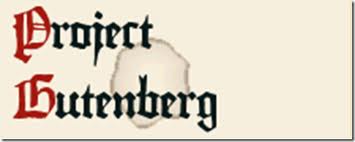Project Gutenberg free eBooks

In the early 1400s, Johannes Gutenberg invented mechanical movable type and revolutionized the printing industry. For the first time, books could be reprinted in large numbers and widely distributed. His invention was the foundation for the Renaissance, the Reformation, the Age of Enlightenment and the Scientific Revolution. In other words, pretty epic and potentially the most important and influential event in the last 600 years.
A worldwide eBook distribution project has taken on his name as their inspiration to bring the newest revolution in books, the digital printing revolution, to the masses as well.
Project Gutenberg was founded by Michael Hart. Hart is, compellingly, essentially the inventor of eBooks, having created the format in 1971 and essentially started Project Gutenberg in the same year. The story goes that he was given $100,000,000 in computer time by Xerox and a team to work with. Hart decided that the value would be in the storage and retreival capabilities of computers rather than in writing a new software, so he sent a message out to everyone who was using computers at that point announcing his declaration. That declaration went the equivalent of "viral" and was reproduced as the first "eText."
Since then, Project Gutenberg has been collecting and providing ebooks and making them available for free. It's the kind of origin story that is not only compelling, but reveals the motivations of those who were creating early computing software and envisioning the future systems. It wasn't about "monetizing" everything- it was about bringing information and resources to the world.
I've written about libraries loaning out eBooks in the past, but there are issues between publishers and libraries about what the costs and availability can and should be. Project Gutenberg is essentially doing the kind of loaning a library does but without the physical building. That's good for the distribution of the words, and could be a powerful force in helping the book world come to terms with what it means for books to function as digital content.
What do you think? Should eBook be available for free through the Internet? If so, what kind of restrictions, if any, are reasonable on new books?
Image courtesy of startupmeme.com

0 comments